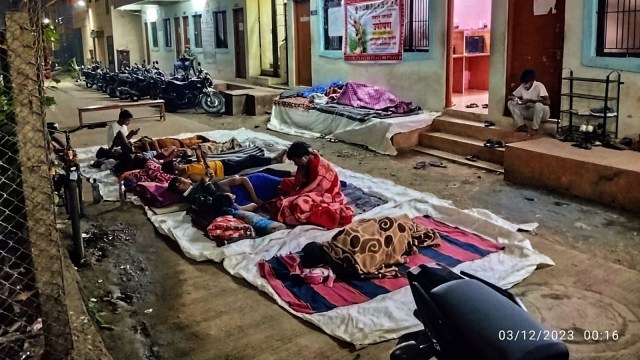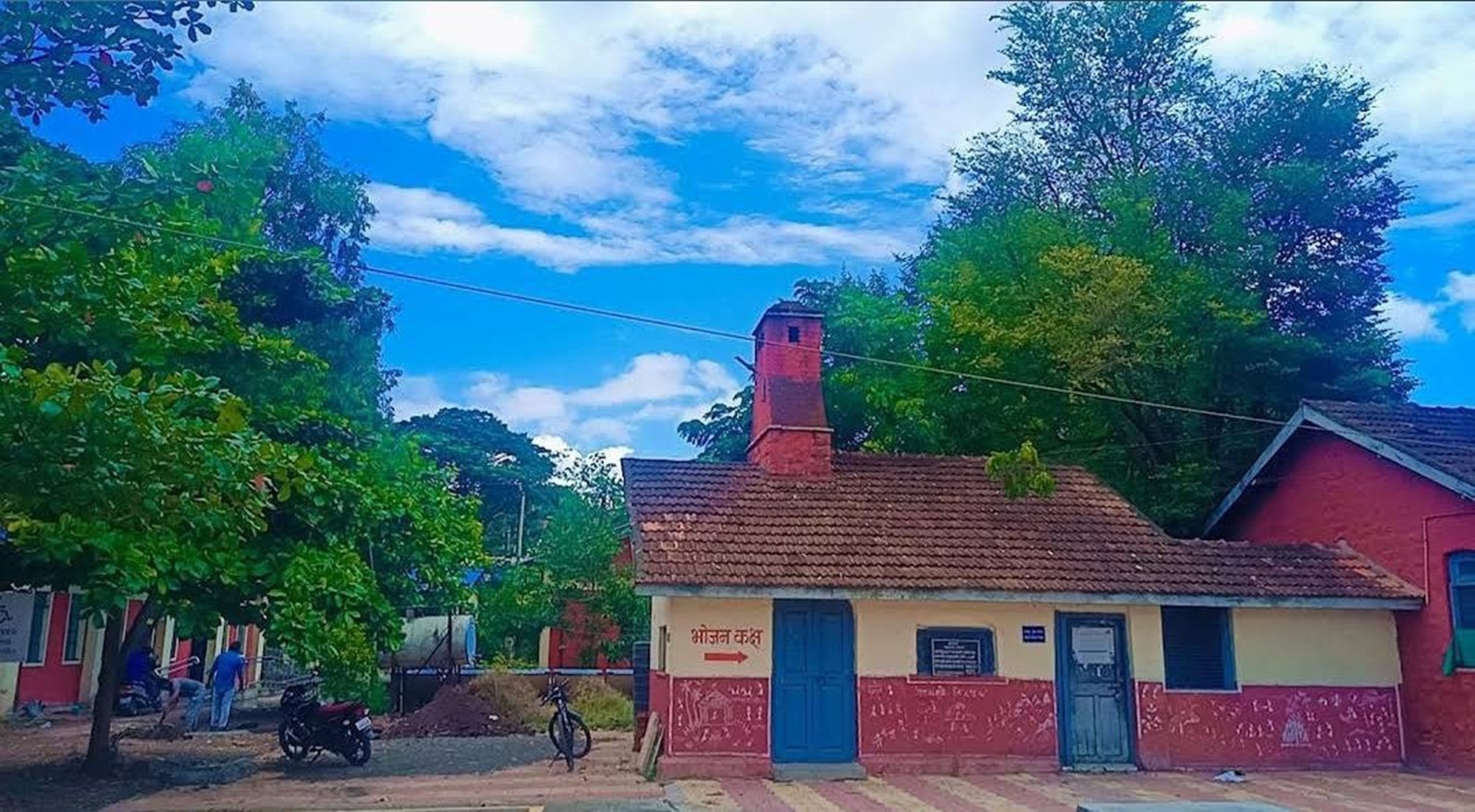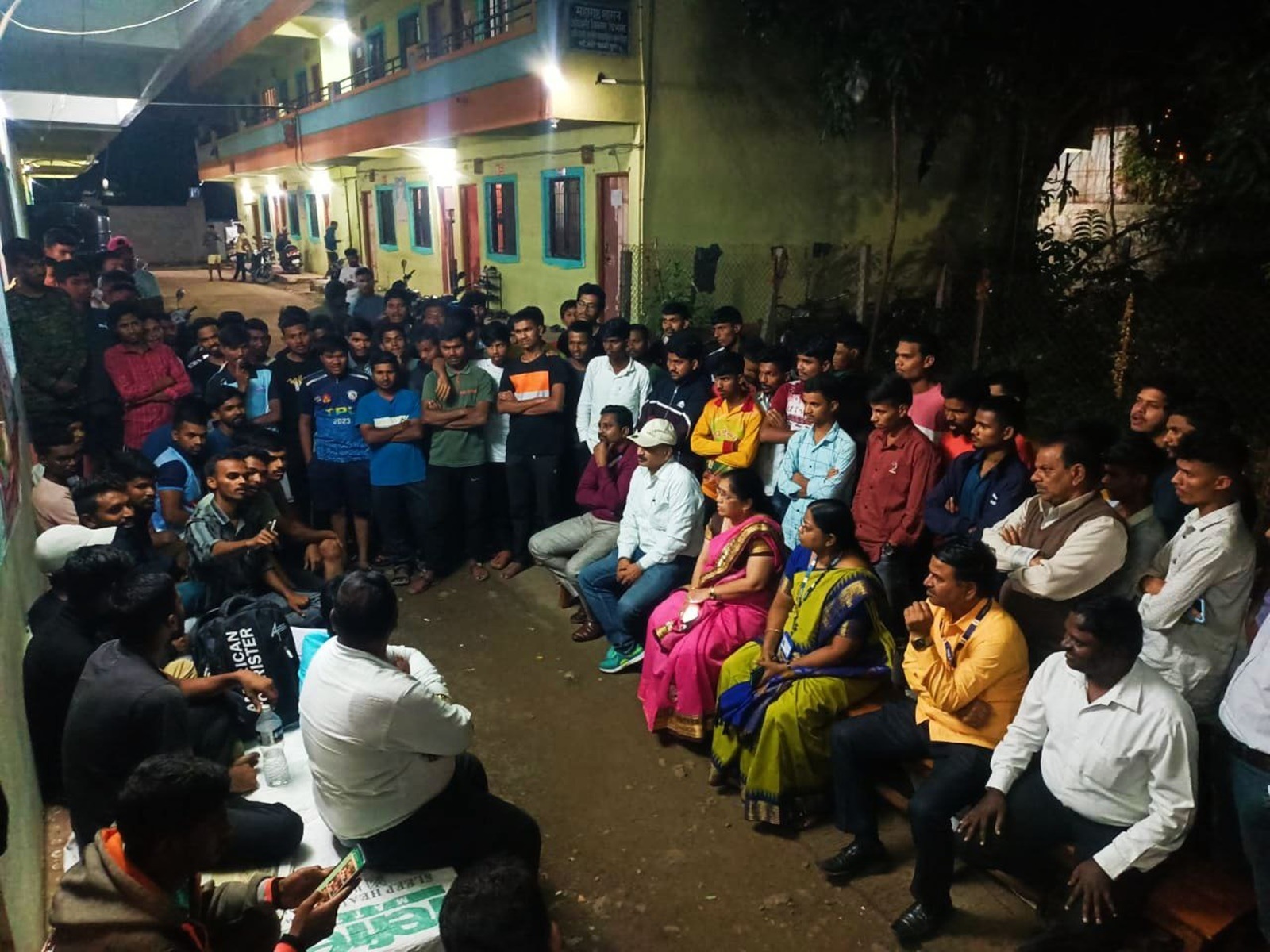Click here to join Express Pune WhatsApp channel and get a curated list of our stories
Delay in remittance, tribal students compelled to leave govt hostels in Pune
According to the official document provided by APO, there are a total of 1,510 boys in the four hostels, with 1,492 qualifying for the amount in the third cycle.
 Many protesters slept in the corridors of the hostel during the protest held at Manjari hostel between November 28 and December 7. (Express Photo)
Many protesters slept in the corridors of the hostel during the protest held at Manjari hostel between November 28 and December 7. (Express Photo)In the heart of Pune, tribal groups from the rural corners of Maharashtra rely government residential hostels to access higher education and dream of a brighter future.
They are helped in this financially by the Direct Benefit Transfer (DBT) scheme. Based on the rules of the Tribal Welfare Department’s resolution of 2018, the Direct Benefit Transfer (DBT) amount should be transferred in the second week of the last month of the ongoing cycle.
The academic year from June to May is divided into four cycles and students receive each installment in advance before the next cycle starts.
In the case of the third cycle which starts from December to February, scholarship amounts were supposed to be transmitted by the second week of November.
But there has been an inordinate delay — once again.
 Adivasi Residential Hostel Koregaon Park. (Express Photo)
Adivasi Residential Hostel Koregaon Park. (Express Photo)
Despite a protest, the one-month delay in the DBT has become an academic disruption, pushing rural students into unforeseen struggles, compelling them to leave the hostel and go back home until they receive the amount.
The DBT scheme is a process of providing financial aid and subsidies through direct transfer into the linked bank accounts of the beneficiaries, started by the central government in 2013.
A total of Rs 12,900 for three months is the only lifeline for the dreams of the tribal groups, who shifted to urban centers like Pune for education.
This amount is further split into two parts, Rs 10,500 for food expenses and Rs 2,400 for additional expenses, disbursed quarterly. Additionally, a fixed amount of Rs 6,000 for stationery is delivered to engineering and medical students while Rs 4,500 for students in other courses. This amount is disbursed once a year.
Vishal Meshram, residing in Koregaon Park tribal hostel, said that often DBT delays may not impact others but mere a month delay creates a precarious situation for him and his community.
Vishal comes from the Gadchiroli’s Pardhan tribe and is pursuing his third year of BA in economics at Fergusson College (FC).
 Pradip Pol, Deputy Commissioner of the Additional Tribal Commissionerate Thane, along with Vijaya Pandhure, Assistance Project Officer from the Ghodegaon office, visited the hostel to address the students’ demands. (Express Photo)
Pradip Pol, Deputy Commissioner of the Additional Tribal Commissionerate Thane, along with Vijaya Pandhure, Assistance Project Officer from the Ghodegaon office, visited the hostel to address the students’ demands. (Express Photo)
Vishal stays with his maternal grandfather because his father refused to accept Vishal’s mother due to her struggle with Epilepsy. He shared that his family cannot afford to cover his studies and monthly expenses. To bridge the gap, he often seeks opportunities in elocution and dance competitions to try his luck. Winning a few competitions, supported his modest expenses.
“The DBT delay just adds fuel to the fire of insufficient funds for tribals to sustain. In Pune, where the cost of living seems to rise with each passing day, it becomes challenging to cover expenses for food, transportation, study materials, and other necessities,” he said.
In preparation for the Common University Entrance Test (CUET) and the Union Public Service Commission (UPSC), Vishal needs an optimal studying environment. However, lacking funds to pay for his tiffin, he left his hostel and headed back to his village.
He said, “I travel from Koregaon Park to my college by bus which requires a monthly pass for Rs 750. Despite a fixed stationery allowance of Rs 4,500, I consistently receive less.
Fieldwork is crucial in our project report and assignments but we only get a reimbursement of Rs 1,000 despite showing the full expense during our fieldwork.”
While explaining the amount of disbursement and the process, the warden of Keshav Nagar Hostel Manoj Shivapurkar said that Pune City has a total of seven tribal hostels, including four for boys and three for girls.
Around 20 per cent of students have received the amount, while it will be transferred for the remaining 80 per cent shortly.
A tribal girl from Yawatmal, who belongs to the Gond Gowari tribe and is studying at FC College, said she is preparing for her upcoming Azim Premji University entrance exam which is scheduled for December 24.
Due to the shortage of funds for her survival in the city, she has returned to her village.
She said, “It was very important for me to stay at a hostel and prepare for my master’s entrance exam but it all went opposite to what I planned, I returned home. I didn’t even have money to buy a one-time meal. My parents are manual labourers who can’t afford my education.”
She said that she stays in Hadapsar Akashwani hostel, 15 KM from the college. Her daily commute involves boarding a bus at 6 am and changing buses three times, resulting a time-consuming travel.
The student further said, “Academic struggles come with additional hurdles like traveling, projects, stationaries, and so on. Without sufficient financial assistance, we are forced to compromise on our health. We barely eat after breakfast due to the high cost of food, making it impossible for us to have two meals.”
“It’s been three years, and we have been demanding beds to sleep in, yet we sleep on floors. I also think there should be some healthcare allowances for girls to address the monthly requirement for sanitary napkins,” She added.
When asked about the insufficient subsidies for students, Vijaya Pandhure, Assistant Project Officer (APO), Tribal Development Commissionerate in Ghodegaon, Pune, said, “Since the closure of the mess and the initiation of DBT in 2017 under the State’s Tribal Ministry, the amount has remained unchanged. However, we have put forth a proposal to increase the amount, with Rs 5,000 allocated per month for food expenses and Rs 1,000 for miscellaneous purposes.”
According to the official document provided by APO, there are a total of 1,510 boys in the four hostels, with 1,492 qualifying for the amount in the third cycle.
Around 679 have received the funds successfully while 806 boys are remaining. For girls, a total of 525 are accommodated in three hostels, with 485 are applicable to receive the amount. Currently, 194 girls have received the funds, leaving 257 yet to be disbursed.
Given the reason behind the delay, Project Officer, Balwant Gaikwad cited the fund scarcity as the primary reason while the other is a technical issue.
Click here to join Express Pune WhatsApp channel and get a curated list of our stories








